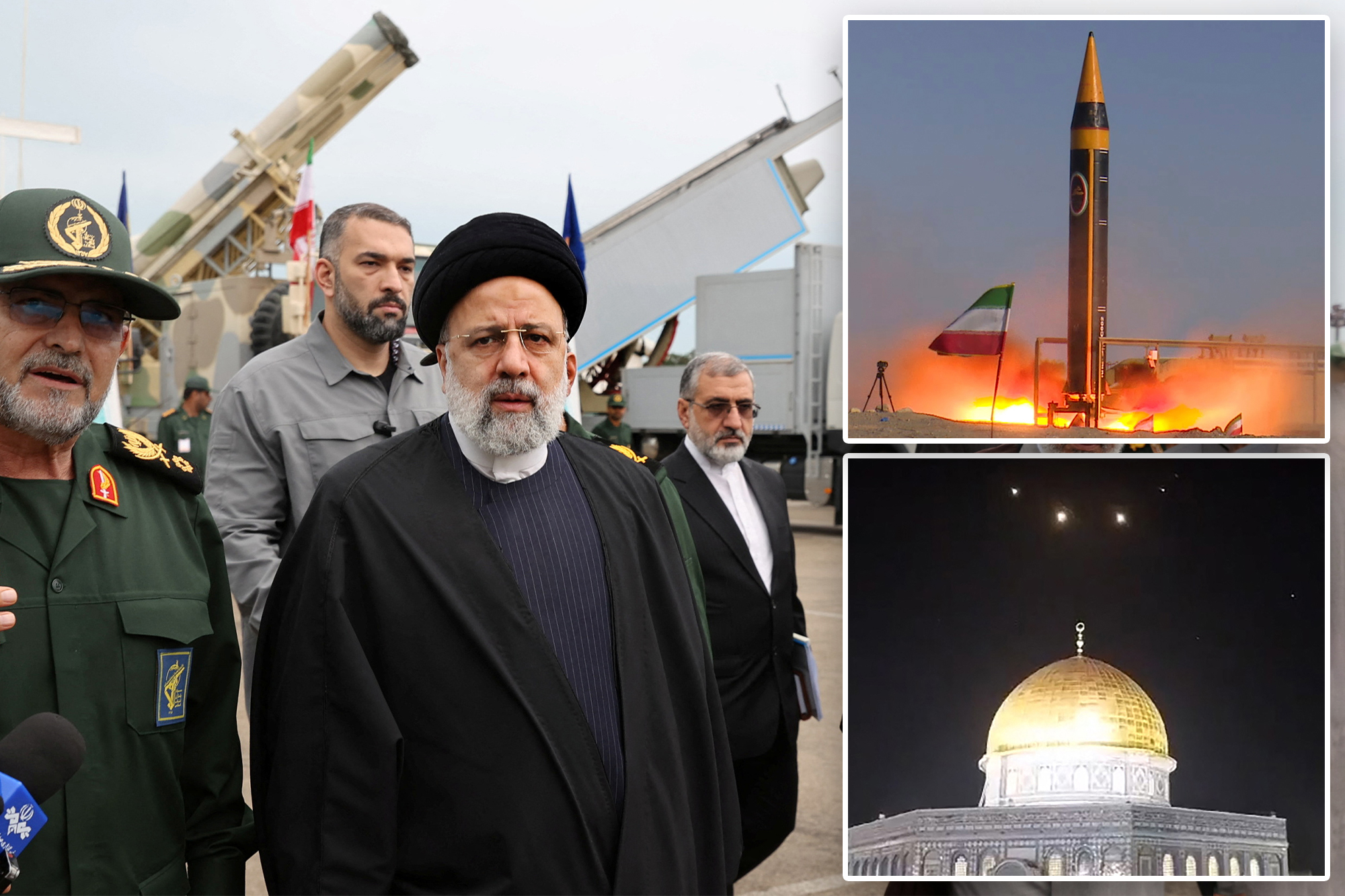
Iran is reportedly getting a terrifying arsenal from Russia, including anti-aircraft launchers and fighter jets — and is threatening to fire weapons it has never before used in “a severe, extensive and painful response” to the “slightest action” by Israel.
Abolfazl Amouei, a spokesperson for the Iranian Parliament’s National Security Committee, told a local news station Monday that the Islamic Republic “will confront any Israeli aggression and respond to it.”
“We are ready to use weapons that we have not used before,” the official told Al-Mayadeen News, according to the Economic Times.
“We have plans for all scenarios, and we call on the zionists to act rationally.”
Separately, Iranian President Ebrahim Raisi warned Israel that if it takes even the “slightest action” it will face “a severe, extensive and painful response.”
“The blind support of some Western countries to the Zionist regime is the cause of tension in the region,” he claimed, according to the Daily Express.
“We will respond in a massive, broad and painful manner to the slightest action targeting Iranian interests.”
The threats come after years of the international community worrying about Iran’s nuclear capabilities.
The Islamic Republic has several nuclear research sites, two uranium mines, a research reactor and three uranium enrichment plants, the Daily Mail reports.
In November 2023, the International Atomic Energy Agency reported that Iran’s uranium stockpile was more than 20 times larger than the limit agreed upon under the Obama-era Iran Nuclear Deal.
By December, the United Nations agency warned that Iran had enriched uranium to up to 60% purity — which is close to weapons-grade.
It said it has enough enriched uranium to build three atomic bombs.
The National Union for Democracy in Iran also wrote in a report earlier this month that its stockpile of enriched uranium, coupled with its centrifuge capacity, are enough to make seven nuclear weapons in just one month.
Iran is also getting weapons from Russia, including anti-aircraft launchers and drones, the Washington Post reports.
It has vowed to support Iran with air defense technology and advanced fighter jets, as well as technical support for its spy satellites.
Further agreements between the two countries may also include efforts to rebuild Iran’s Air Force — which is currently made up of rebuilt Soviet and US jets from before 1979 — as well as efforts to increase Iran’s supply of spy satellites and help it build more rockets, according to the outlet.
Officials in Tehran are also pushing for Russia’s anti-aircraft launchers — which military analysts say are capable of destroying stealth fighter jets operated by the US and Israel.
In exchange, Iran has vowed to support Russia in its ongoing war against Ukraine.
Iran agreed in 2022 to supply thousands of drones and missiles to Moscow to support its war efforts, and Russia agreed late last year to buy about $2 billion worth of military equipment — including anti-drone defense systems — from Iran.
The Islamic Republic has also agreed to sell Russia surface-to-surface missiles, which intelligence suggests would be transferred imminently.
It has also sold more than 600 jet-powered drones that were described as being able to travel at about 400 miles per hour, three times faster than previous Iranian drones.
The United Nations is now warning both Israel and Iran against retaliation.
But on Sunday, Israeli Defense Minister Yoav Gallant told US Defense Secretary Lloyd Austin that the Jewish home state has “no choice” but to retaliate against the rogue nation for launching hundreds of missiles and suicide drones into Israeli airspace, according to an Axios correspondent Barak Ravid.
None of the drones or cruise missiles struck Israel, and only a few of the ballistic missiles made it through, according to the Jerusalem Post.
Iran’s aerial assault was in retaliation for an Israeli airstrike in Damascus on April 1 in which a top Iranian general was killed.
Israeli media later reported that the target of the strike — Gen. Mohammad Reza Zahedi — was a key planner of the Oct. 7 attack on southern Israel that killed more than 1,100 people and sparked the war in Gaza.














